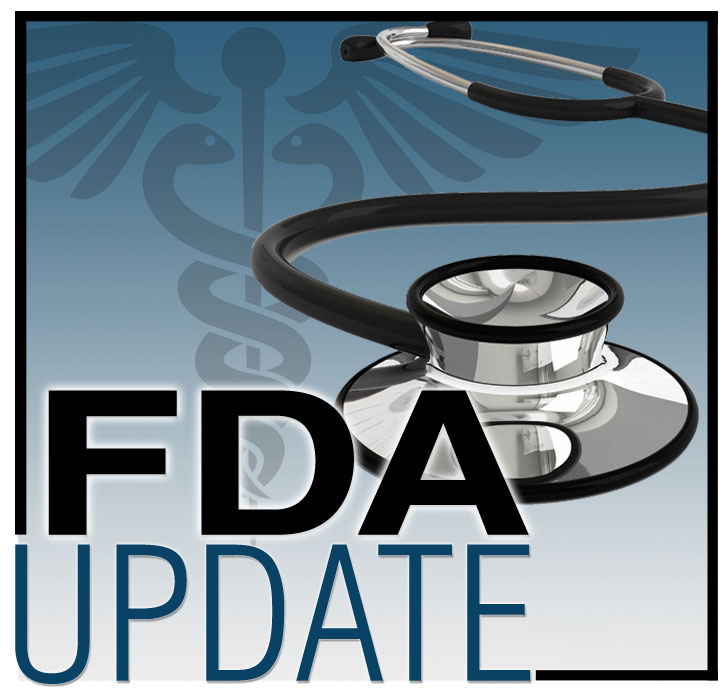
On June 23, 2017, the U.S. Food and Drug Administration (FDA) approved betrixaban (Bevyxxa, Portola) for the prophylaxis of venous thromboembolism (VTE) in adult patients hospitalized for an acute medical illness who are at risk for thromboembolic complications due to moderate or severe restricted mobility and other risk factors for VTE.
Approval was based on data from APEX (NCT01583218), a randomized, double-blind, multinational clinical trial comparing extended duration betrixaban (35 to 42 days) to short duration of enoxaparin (6 to 14 days) in the prevention of VTE in an acutely medically ill hospitalized population with risk factors for VTE. The trial randomized 7,513 patients to either betrixaban or enoxaparin treatment. Patients on the betrixaban arm took an initial dose of 160 mg orally on day 1, then took 80 mg once daily for 35 to 42 days and received a placebo injection once daily for 6 to 14 days. Patients on the enoxaparin arm received 40 mg subcutaneously once daily for 6 to 14 days and took a placebo pill orally once daily for 35 to 42 days.
Efficacy was measured in 7,441 patients by a composite outcome score comprised of either the occurrence of asymptomatic or symptomatic proximal deep vein thrombosis, non-fatal pulmonary embolism, or VTE-related death. Fewer events were observed in patients receiving betrixaban (4.4%) compared with those taking enoxaparin (6%) (relative risk 0.75, 95% CI: 0.61, 0.91).
The most common adverse reactions (≥5%) with betrixaban were related to bleeding. Overall, 54% of patients receiving betrixaban experienced at least one adverse reaction compared with 52% taking enoxaparin. The frequency of patients reporting serious adverse reactions was similar between betrixaban (18%) and enoxaparin (17%). The most frequent reason for treatment discontinuation was bleeding, with an incidence rate for all bleeding episodes of 2.4% and 1.2% for betrixaban and enoxaparin, respectively. The incidence rate for major bleeding episodes was 0.67% and 0.57% for betrixaban and enoxaparin, respectively.
The recommended dose of betrixaban is an initial single dose of 160 mg starting on day 1, followed by 80 mg once daily taken for 35 to 42 days at the same time each day with food.
Full prescribing information is available.
Healthcare professionals should report all serious adverse events suspected to be associated with the use of any medicine and device to FDA’s MedWatch Reporting System by completing a form online, by faxing (1-800-FDA-0178) or mailing the postage-paid address form provided online, or by telephone (1-800-FDA-1088).
Follow the Oncology Center of Excellence on Twitter @FDAOncology.
Check out recent approvals at the OCE’s new podcast, Drug Information Soundcast in Clinical Oncology (D.I.S.C.O.).
In collaboration with the FDA and as a service to our members, ONS provides updates on recent FDA approvals and other important FDA actions (e.g., updated safety information, new prescribing information) pertaining to therapies for patients with cancer. This allows the agency to inform oncologists and professionals in oncology-related fields in a timely manner. Included in the FDA updates is a link to the product label or to other sites for additional relevant clinical information. In supplying this information, ONS does not endorse any product or therapy and does not take any position on the safety or efficacy of the product or therapy described.





